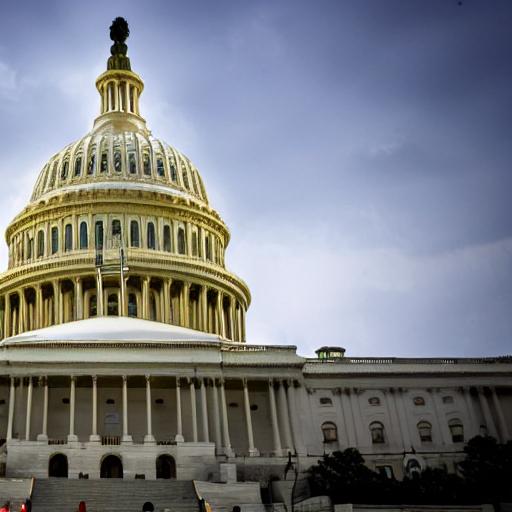After holding joint public hearings beginning in May, the U.S. House Financial Services Committee and House Agriculture Committee will develop legislation to regulate the cryptocurrency industry in the “next two months,” according to Rep. Patrick McHenry (R-N.C.), chair of the House Financial Services Committee.
In answer to the question of whether President Joe Biden could sign such a bill during the following 12 months, McHenry said, “Yes.” The important legislator swiftly added a caution, saying that it is never simple to create new legislation.
They intend to report a deal out over the next two months, according to McHenry, who also added that the bill will cover both the commodities and securities regimes as well as concerns that are challenging to resolve on either side.
Sen. Cynthia Lummis (R-Wyo.), the other panelist at the discussion, expressed her eagerness to collaborate with McHenry in organizing these efforts and her belief that the House had a better chance than the Senate of adopting legislation sooner. It would “improve our chances” in the Senate, she claimed, if the House takes action first on cryptocurrency.
According to Lummis, they made an effort to keep politics out of the discussion. They must solve this issue on a bipartisan basis before the 2024 election.
Despite several bills making headway on Capitol Hill last year, Comprehensive crypto legislation has not yet been passed by the US Congress.
Though bipartisan support for a second attempt at stablecoin legislation is still uncertain, Republicans on the House Financial Services Committee made an effort this month. Republicans unveiled a discussion document that might serve as a new beginning point for negotiations with Democrats.
With Sen. Kirsten Gillibrand (D-N.Y.), Lummis, known as the “Crypto Queen” of the Senate, sponsored the bipartisan “Responsible Financial Innovation Act” last year, which sought to establish a regulatory framework for the sector.
A revised version of the bill would be introduced in six to eight weeks, Lummis informed the audience at Consensus.
They’ll likely have a more robust section on national security. You’ll notice that this bill has a heavier focus on cybercrime, Lummis remarked.
The federal government should look into cases of cryptocurrency use for illegal activity, such as how terrorists or other bad guys might utilize cryptocurrencies, in accordance with a bipartisan bill that was put out on Thursday in the U.S. Senate and House of Representatives.
McHenry’s committee questioned Gary Gensler, the head of the U.S. Securities and Exchange Commission (SEC), last week because he refused to say if ether (ETH), the second-largest cryptocurrency by market valuation, was a security. Lummis contends that Congress must offer sufficient guidance in this area.
Lummis contends that Congress must offer sufficient guidance in this area. She believes that the Howey Test will continue to be applied in the way that American courts have expressed it most recently.
Republicans and Democrats in Congress are still at odds, but pressure to legislate the industry has been mounting in the wake of the failure of the FTX cryptocurrency exchange and the more recent collapse of crypto banking.
McHenry said that it is appropriate to refer to the recent role that cryptocurrency has played in the U.S. banking crisis, which has stressed the industry’s banking connections, as “Operation Choke Point 2.0.”
He asserted that they must address this issue and offer assurance that you may conduct banking operations safely and securely. This is an excellent illustration of why Congress needs to pass laws and offer clarification.
The Markets in Crypto Assets (MiCA) regulation has been authorized by countries like the European Union, making it the first significant region in the world to implement a comprehensive cryptocurrency law. According to McHenry, the EU’s accord puts the union in the lead on Web3 technology.
Lummis mentioned MiCA and other initiatives, saying that several jurisdictions are ahead of them. They are rapidly lagging behind. They are being exhorted by these nations to catch up.
While Hong Kong and the UK are rethinking how they approach cryptocurrency, regulators in Japan and the United Arab Emirates have also taken steps to regulate the industry.








